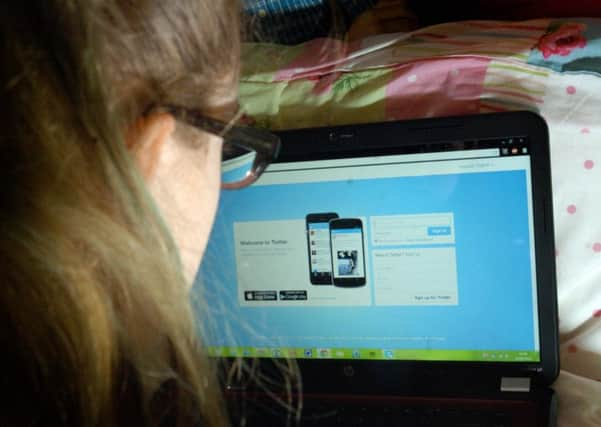How trusted adults can help young people tackle loneliness


This is what one 16-year-old told Childline. It is normal to feel lonely at times, but sometimes the feeling can become persistent and overwhelming.
During the past year, Childline held 4,636 counselling sessions where young people said they felt lonely or isolated.
This was 14% more than the previous year.
Advertisement
Hide AdAdvertisement
Hide AdThere are many reasons why someone can feel lonely. In our counselling sessions we found that contributing factors included mental health issues, bullying and social media.
Young people told counsellors they felt invisible and misunderstood, and that those closest to them were struggling to understand their feelings.
As a result, they often spent a lot of time in their bedrooms or online, which only intensified their loneliness.
Some said they compared themselves to others when they looked at posts online. It made them feel that everyone else was having a better time, and they had been left out of social events.
Advertisement
Hide AdAdvertisement
Hide AdBeing bullied can also make a young person feel isolated. If it takes place online, they may feel they cannot escape from it.
Some young people told Childline counsellors they self-harmed to cope with their negative feelings, or even contemplated ending their own life.
Others felt lonely because they were struggling to fit into new surroundings after moving house or school, or leaving home, or they had lost someone close to them through death or a relationship break-up.
Whatever the cause, and even if the reason is unknown, our advice is for the young person to share their feelings with a trusted adult.
Advertisement
Hide AdAdvertisement
Hide AdIf they find this too difficult or that person is unavailable then they can call Childline at any time of day or night and speak to a counsellor confidentially.
It can often help to realise you are not the only person feeling like you do.
Childline message boards give young people the chance to share feelings with their peers.
Parents who are concerned their child may be experiencing loneliness could try to start a conversation about it at a time there’s not a risk of being interrupted.
Advertisement
Hide AdAdvertisement
Hide AdIf the young person does not want to discuss it then the parent could try again in a few days.
The most important thing for parents to do is to listen and try to keep calm if their child tells them something alarming or upsetting.
Children and young people with any worries can contact Childline on 0800 1111 or www.childline.org.uk, while adults concerned about a child can contact the NSPCC’s free and confidential helpline on 0808 800 5000.